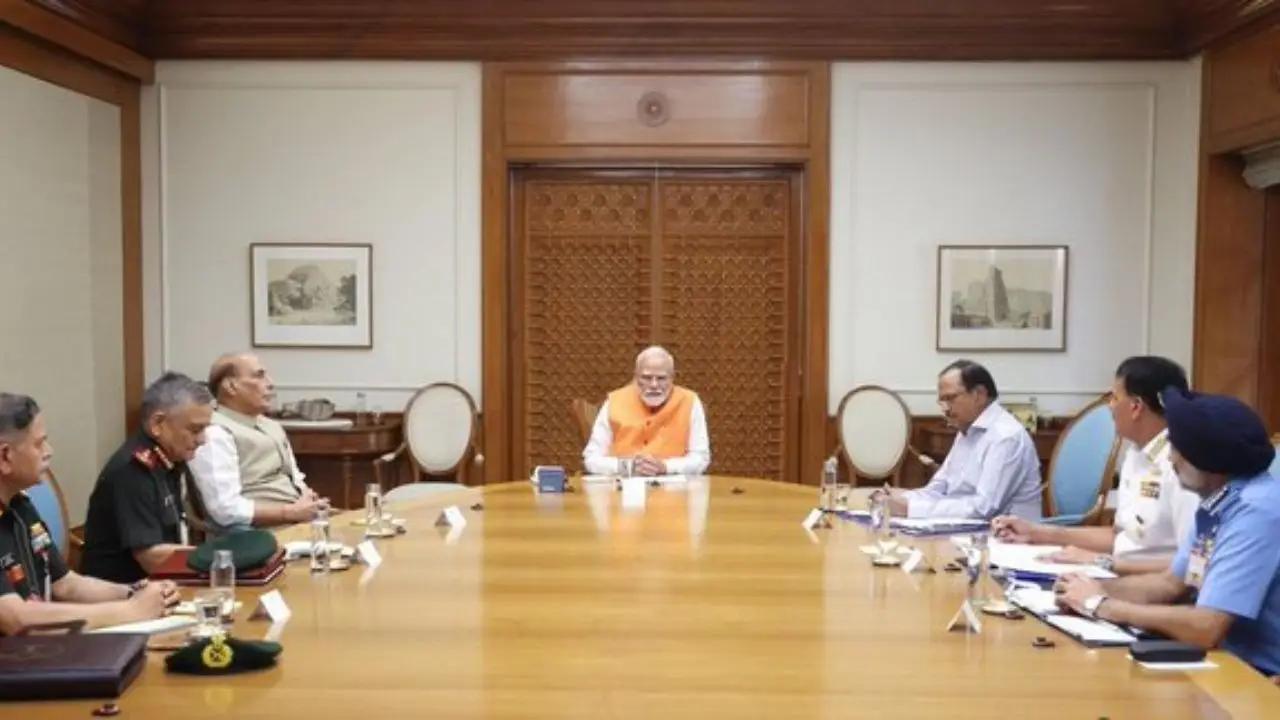
PM Modi Chairs CCPA Today (X/@Indian_Analyzer)
In the wake of the deadly terror attack in Pahalgam on April 22, which claimed the lives of 26 civilians, the security situation between India and Pakistan has taken a severe turn. Following this attack, National Security Advisor (NSA) Ajit Doval met Prime Minister Narendra Modi for the second time in 24 hours, indicating the urgency of addressing the growing threat from Pakistan. The two leaders held a crucial 40-minute meeting, where the focus was on developing a strategic response to Pakistan's continued hostility, especially after the escalation of ceasefire violations along the Line of Control (LoC).
India has responded to this escalation by granting its armed forces "complete operational freedom," allowing them to act decisively against terrorist threats emanating from Pakistan. The Indian government has also suspended the Indus Waters Treaty, an act that symbolizes growing tensions between the two nuclear-armed neighbors. Alongside military preparations, India is also strengthening its civil defense efforts, with nationwide mock drills scheduled for May 7, 2025, to train civilians on how to protect themselves in the event of airstrikes. The exercise will include the use of sirens and blackout drills, ensuring the public is prepared for any eventuality.
The high-level discussions between Doval and Modi also involved a comprehensive review of India's diplomatic measures. The government has already taken steps such as halting Pakistani imports and closing the Attari border, aiming to exert economic pressure on Pakistan. India is also focused on utilizing its water resources to impact Pakistan’s hydropower supply. These actions demonstrate India's multi-pronged approach to dealing with Pakistan's aggressive stance.
India's External Affairs Minister S. Jaishankar has taken a firm stance at the United Nations Security Council (UNSC), countering Pakistan's allegations of a "false flag" operation. India is pushing for a robust response to tackle cross-border terrorism and protect national security. While seeking international backing for potential military action, India is navigating a delicate balance between military preparedness and diplomatic efforts.





Copyright © 2026 Top Indian News
